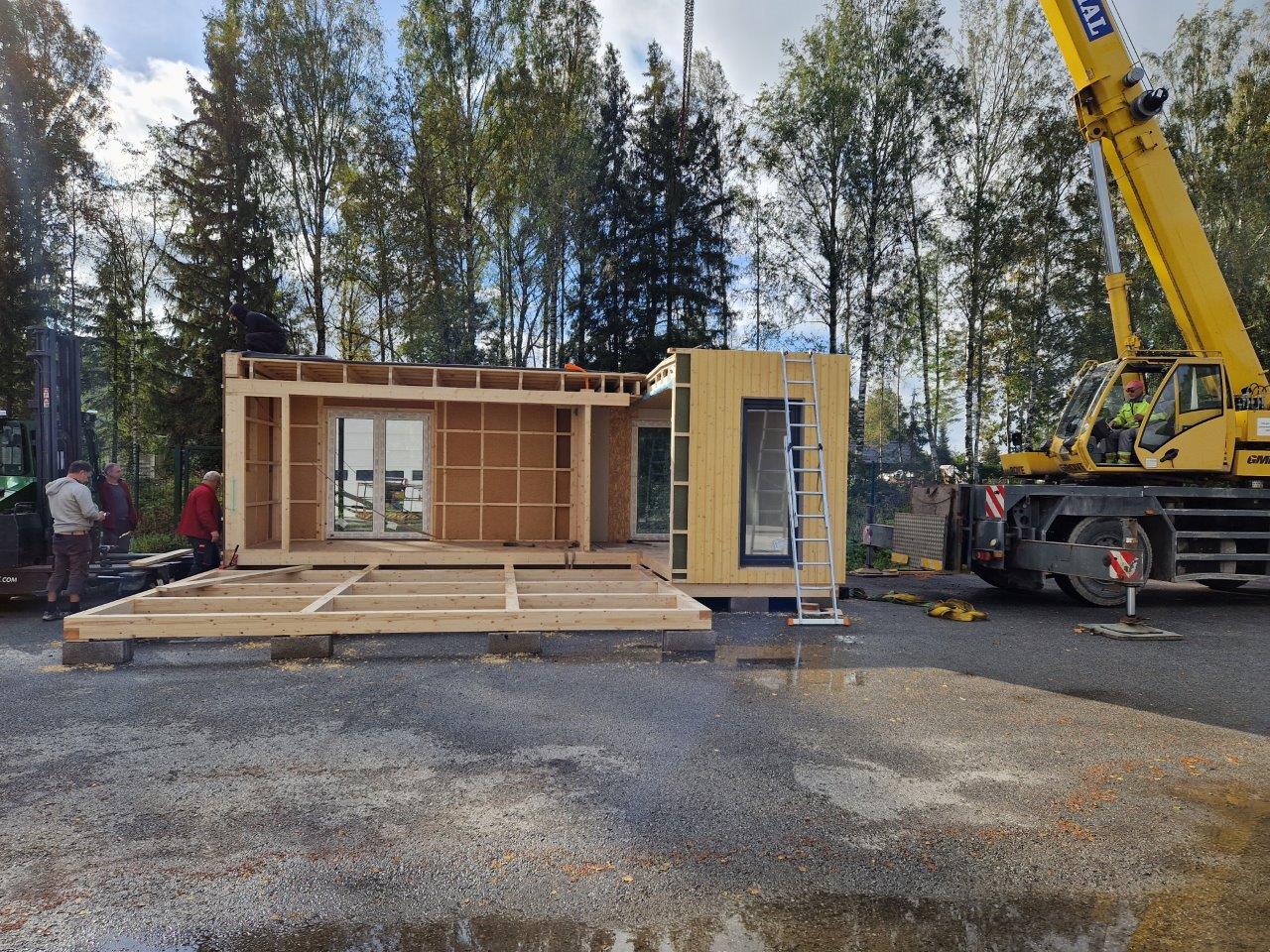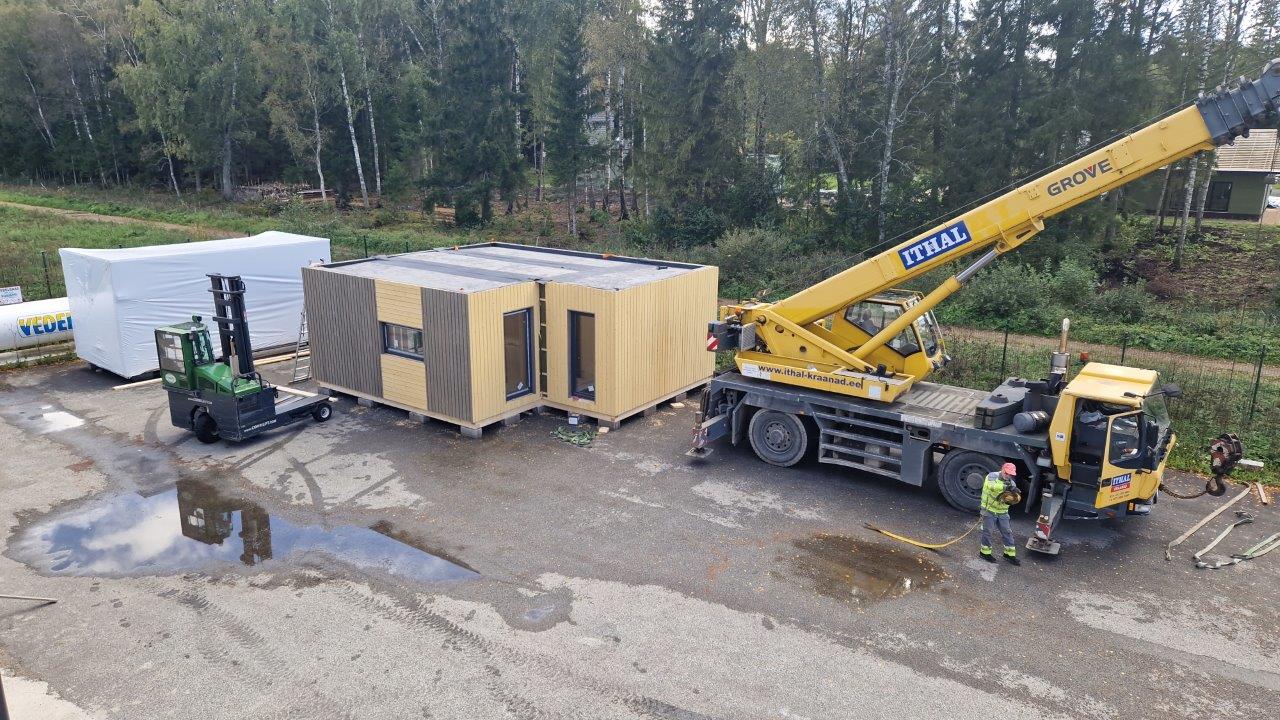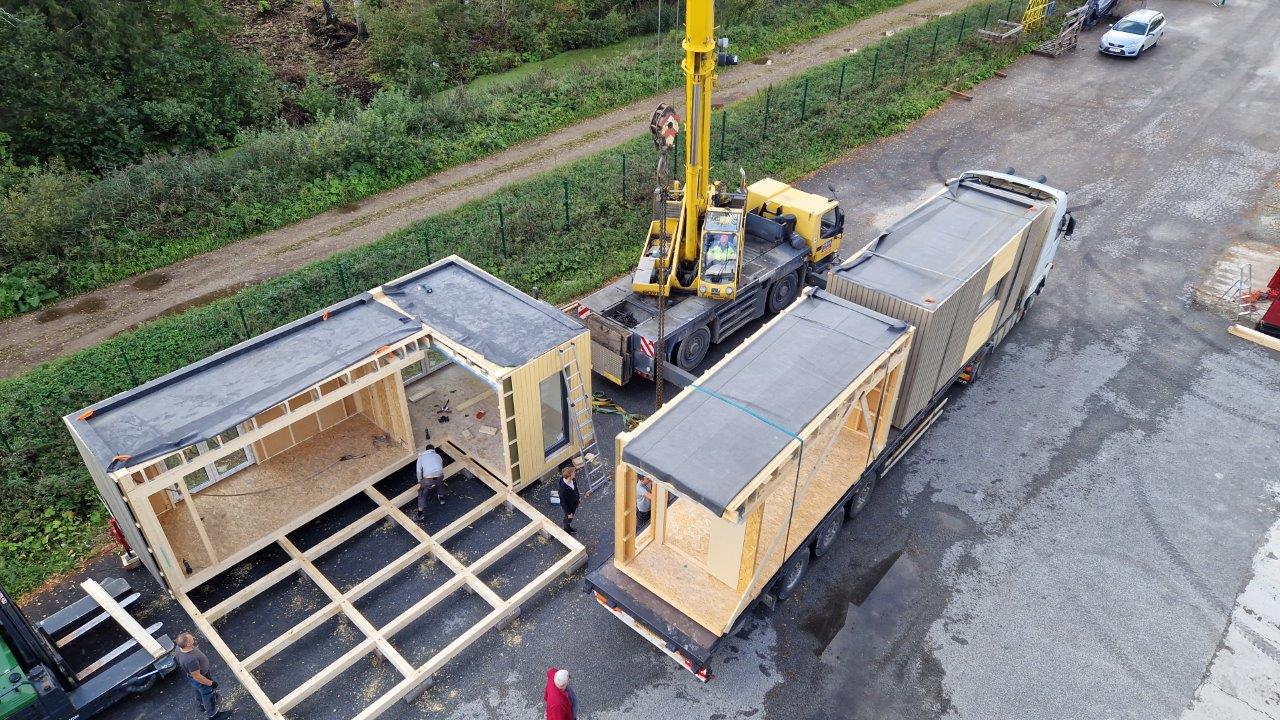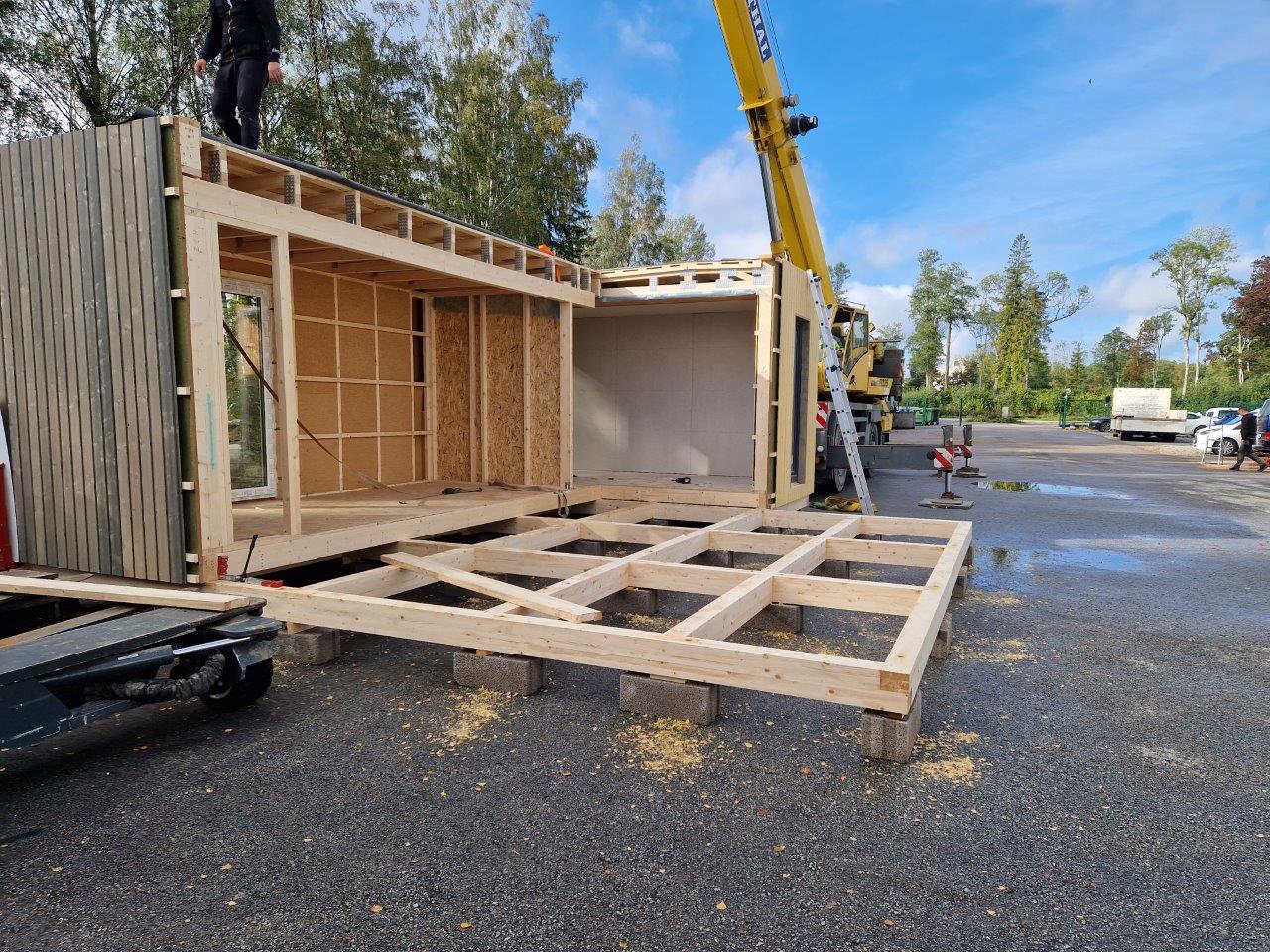Benefits of modular houses
NorgesHus modular homes, or prefabricated homes, come with several benefits, making them an increasingly popular choice for new home construction.
1. Efficiency:
Because they’re built in a controlled factory environment, modular homes can be constructed more efficiently than traditional homes. The process is not subject to weather delays, and workers can operate more efficiently in a factory setting.
2. Speed of Construction:
The construction process for a modular home is typically much faster than a traditional stick-built home. Once the design is finalized, the home can be manufactured while the site work is being completed, saving time.
3. Quality Control:
In a factory setting, it’s easier to control the construction process and ensure quality. The materials are stored in a controlled environment, reducing the chances of damage or delay due to weather. Moreover, inspections take place at each stage of the process, ensuring high standards are met.
4. Cost-Effective:
Modular homes can be more cost-effective than traditional homes. The efficient use of materials and labor in the factory setting can lead to cost savings. Also, the shorter construction time can result in lower financing costs.
5. Flexibility and Customization:
Despite being pre-fabricated, modular homes offer a wide range of customization options. Buyers can choose from various floor plans, designs, and finishes to meet their specific needs and preferences.
6. Environmental Impact:
Modular homes can be more environmentally friendly than traditional homes. The factory process allows for more efficient use of materials, reducing waste. In addition, many modular homes are designed to be energy-efficient, which can result in lower heating and cooling costs.
7. Strength and Durability:
Because they need to withstand transport from the factory to the building site, modular homes are often built to be stronger than traditional homes.
The modules are designed to be structurally self-sufficient and, when joined together, form a structure that is often more robust than a similar site-built home.
Remember that while there are many benefits to modular homes, they may not be the right fit for everyone or every situation.
1. Efficiency:
Because they’re built in a controlled factory environment, modular homes can be constructed more efficiently than traditional homes. The process is not subject to weather delays, and workers can operate more efficiently in a factory setting.
2. Speed of Construction:
The construction process for a modular home is typically much faster than a traditional stick-built home. Once the design is finalized, the home can be manufactured while the site work is being completed, saving time.
3. Quality Control:
In a factory setting, it’s easier to control the construction process and ensure quality. The materials are stored in a controlled environment, reducing the chances of damage or delay due to weather. Moreover, inspections take place at each stage of the process, ensuring high standards are met.
4. Cost-Effective:
Modular homes can be more cost-effective than traditional homes. The efficient use of materials and labor in the factory setting can lead to cost savings. Also, the shorter construction time can result in lower financing costs.
5. Flexibility and Customization:
Despite being pre-fabricated, modular homes offer a wide range of customization options. Buyers can choose from various floor plans, designs, and finishes to meet their specific needs and preferences.
6. Environmental Impact:
Modular homes can be more environmentally friendly than traditional homes. The factory process allows for more efficient use of materials, reducing waste. In addition, many modular homes are designed to be energy-efficient, which can result in lower heating and cooling costs.
7. Strength and Durability:
Because they need to withstand transport from the factory to the building site, modular homes are often built to be stronger than traditional homes.
The modules are designed to be structurally self-sufficient and, when joined together, form a structure that is often more robust than a similar site-built home.
Remember that while there are many benefits to modular homes, they may not be the right fit for everyone or every situation.
Some potential downsides to consider include limitations on design or size due to transportation constraints, potential stigma or misunderstanding about modular homes, and potential difficulties with zoning or building regulations in certain areas.
As with any home purchase or construction project, it’s important to do your research and consider your specific needs and circumstances.











